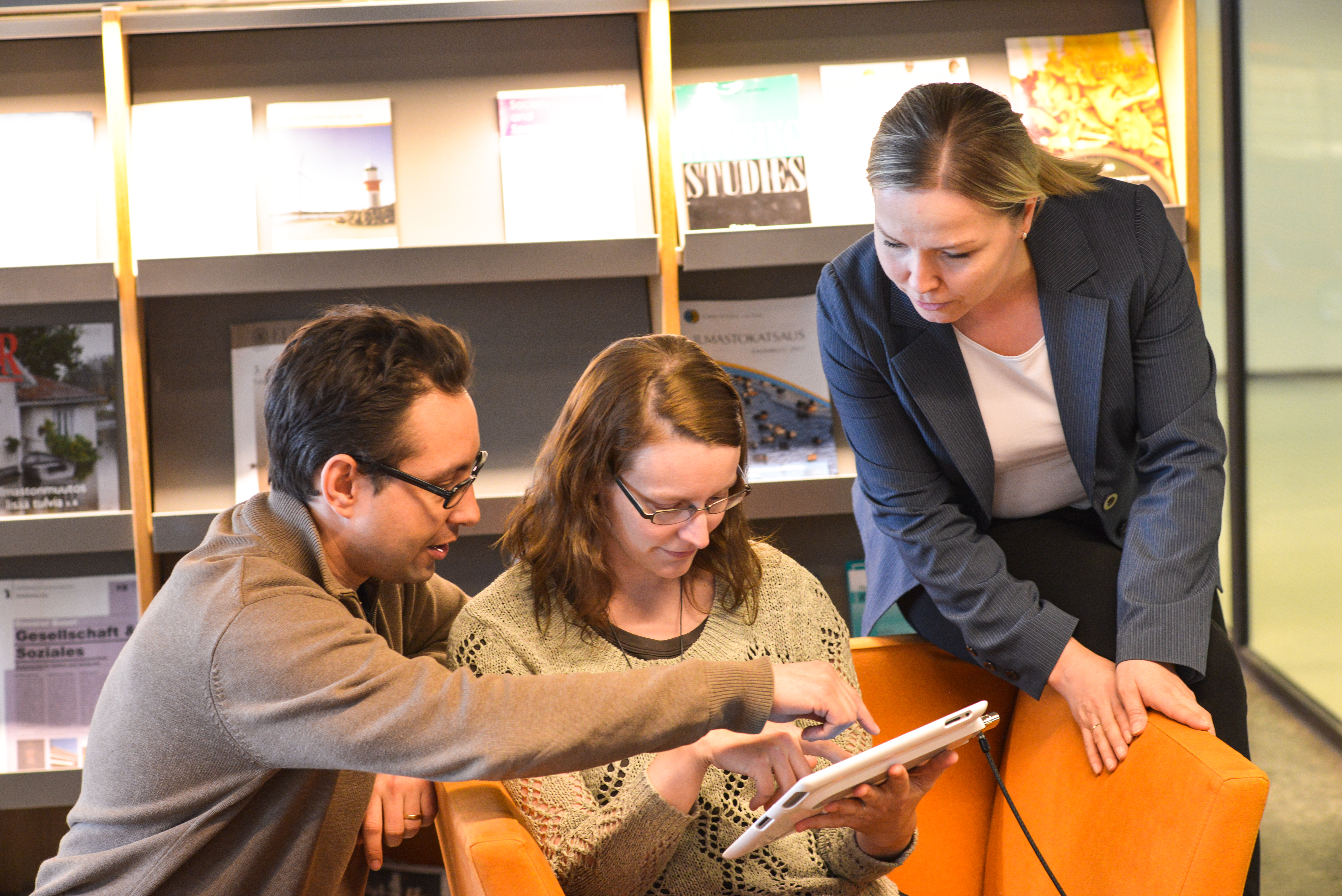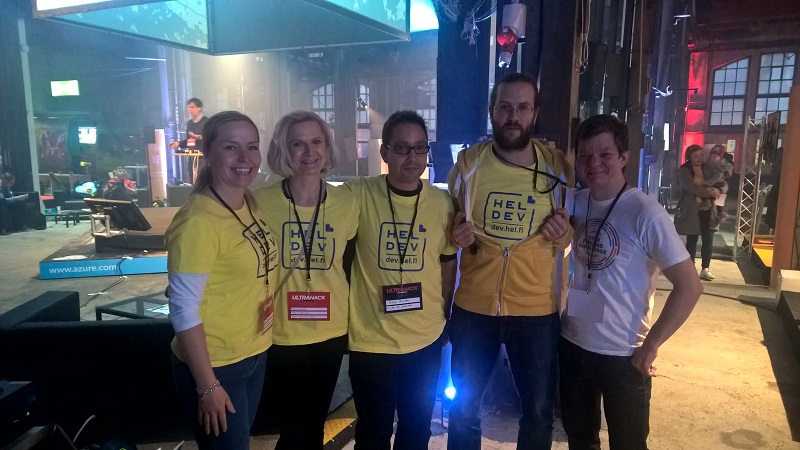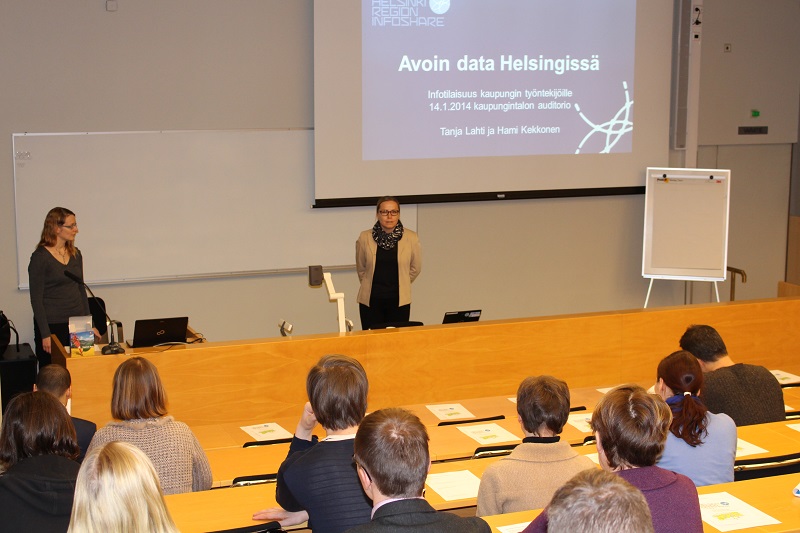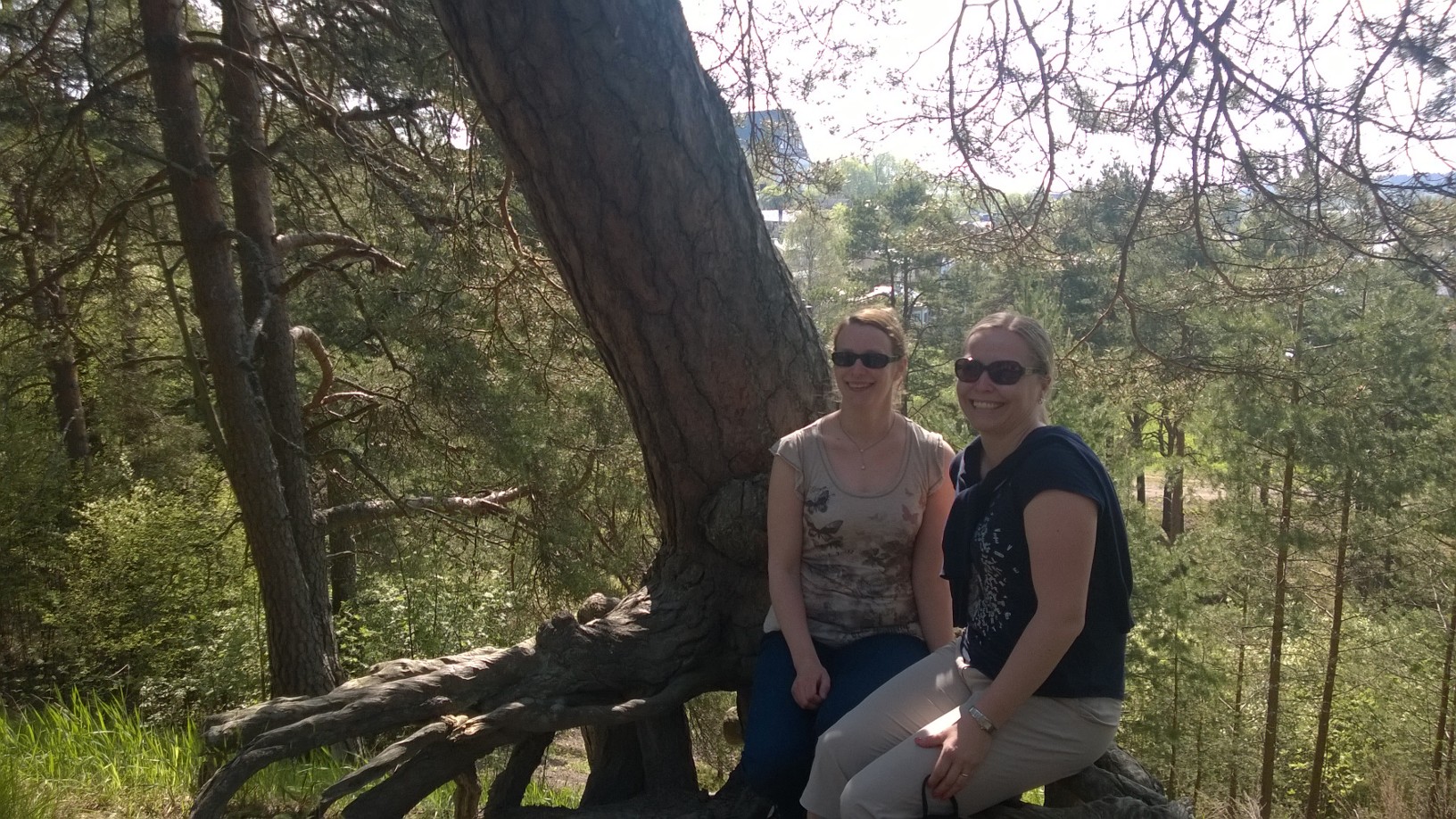Demand for openness is growing – and that is a good thing!
Helsinki and the other cities in the capital region have made great progress in opening data over the past few years. It has been a pleasure and honour to be a part of the effort to promote the opening and utilisation of data. Making full use of the benefits still requires a lot of work, but recognising open data in the digitalisation development in the cities guarantees the progress. Now it is time to say thank you and move on to advance open data at the national level.

I must confess. Seven years ago, when I began my work with open data, I naively thought that the amount of public data in Helsinki and the other cities in the capital region was quite limited, and that this mound of data would be at least broadly known and defined in the City organisation. This turned out to be a utopia. In truth, there is a huge amount of data and it is available in different kinds of fragmented splinters throughout the city organisation.
Digging into the data system catalogues of the cities really opened my eyes. There are hundreds of systems that contain data, and not all data are in the listed systems. Of course, data management has been undertaken here and there, but no one had an overall picture and understanding of the data reserves, and no one still really has. But I am hopeful. In the case of Helsinki, for example, the situation will likely improve considerably with the forthcoming data strategy, and especially through its implementation.

At the beginning of my work, I was also able to dive into the curious world of open application programming interfaces (APIs). I was immediately convinced of their sensibility and usefulness. Over the years, the number of open interfaces has grown nicely especially in Helsinki, and the data obtained through interfaces is utilised in a wide variety of ways. However, there is still a lot of work to be done making interfaces for the systems. I am hopeful here, too. Helsinki is currently finalising API guidelines, which will bring a needed momentum and clarity, not only from an administrative perspective, but from a technical and general point of view as well.
I have done my work with great passion, as I believe that open data will benefit us all and the work has thus seemed very meaningful to me. In the early days, there was resistance to change at the city units. Since then, the understanding of the significance of open data has grown and spread, which has made it much easier to advance things. Over the past years, I have been able to focus on a wide range of data processes, dealing with defining, compiling, procurement, management or distribution, in the cities of the capital region. There have been few explicit operating models for opening data and there are still quite few established standards. This has created a situation that requires brave and agile development of solution models in test-case circumstances. Solutions have been developed jointly between data owners, city software developers, system suppliers, legal experts and often also external stakeholders. In this work, the support of the City’s political and civil servant management has been of paramount importance to the cause. I particularly respect Asta Manninen, who initiated the operations of HRI and served as the head of the City of Helsinki Urban Facts for a long time, as the most important advocate of open data in Finland. I am very grateful to her, my colleagues and our interest groups for the co-operation, which has been necessary in order to move forward.

Today we can proudly state that the City of Helsinki has managed to open a wide range of public data as open data and the opening process has become familiar across the city organisations. For example, at the urban environment division, opening data is genuinely part of the basic operations and they have received positive feedback from the field.
I am also very pleased that the data that have been opened seems to benefit quite a few, from students to entrepreneurs and from residents to city employees. We just conducted an open online survey to which 75 people responded – the answers were delightful! I can recall the numerous hackathons and developer meetings where the use of data has been innovated and tried out in very motivating and inspiring ways.
There is a lot of potential in open data, but there are also still many factors hampering the more efficient realisation of the benefits and the creation of an open data ecosystem. Current discussion topics are, for example:
- data governance and data management: what in practice, who is in charge, in which ways, data ownership, avoiding the supplier trap, implementation of the Data Management Act?
- data quality: how to improve quality and by whom, how to further technical, semantic and organisational interoperability, improved documentation of interfaces, validation of sensor data?
- data protection and data security: how to ensure privacy, secure solutions?
- data discoverability: how to improve the discoverability of data and the quality of metadata, unique identifier for data?
- availability of data: Is SLA offered for interfaces, interface data also available in tabular format, archiving of dynamic data?
- data competence: how to strengthen the understanding and skills of the community (residents, companies, organisations, researchers, students, media, public sector employees etc.) in utilising data and interfaces? Openness of algorithms used to utilise data?
Many players, including HRI, have developed solution models to these challenges. Some solution models have also been tried and introduced, but there is still a lot of work to be done.
The EU directive on open data and the re-use of public sector information (EU 2019/1024) adopted last summer requires public administration to make further efforts to open public data. The directive is a revised version of the previous PSI (Public Sector Information) directive. With the new directive, opening public data is expected to become a clearer part of European and Finnish public administration and society. The new Information Management Act also obliges interfaces to be provided. I am confident that with the implementation of these obligations, more solution models will be found to better realise the potential of open data and to gradually strengthen the data ecosystem.
The demand for openness will grow – and that is a good thing! However, there is no point in dreaming of a flawless data ecosystem, as the world is constantly changing and becoming more complex, which forces us to continuously develop and renew our thinking and methods. The amount of data has exploded and much unreliable data is also circulating online. In order to keep up with the development, everyone needs to develop both their ability to anticipate and react and their ability to find and make use of relevant data. Organisations are increasingly investing in data-driven management and in the utilisation of artificial intelligence. Many parties are also struggling with economic challenges, which in part forces them to reform and intensify the operations. Open data supports us in keeping up with this development.

In my opinion, a well-functioning, reliable, democratic and competitive society requires that public data produced with tax funds is available as openly and extensively as possible. This idea is also supported by the principle of publicity. In the context of decision-making and service production in public administration, anyone should have the opportunity to ask complex and even difficult questions and easily get access to open data, based on which it is possible to find answers or make analyses, applications or other things with added value.

For the past seven years, I have been dedicated to furthering the open data activities in the capital region. This has been a very rewarding time and I have learned a lot. Now it’s time to say thank you and move on. Next, I will start promoting open data activities on a national level. I feel very sentimental, as the City of Helsinki has been a great employer and my colleagues warm-hearted. At the same time, I’m looking forward to future work endeavours, colleagues and partners. I trust that the cooperation with municipalities and other now familiar open data interest groups will continue in one way or another.
I believe that Finland has all the potential and opportunities to become an open data model country, where reliable, interoperable open data of high quality is available as widely as possible and we all benefit from the use of it. This requires extensive, open and active cooperation, with the focus on finding solutions.
I do want to express my sincere and heartfelt thanks to all colleagues and cooperation partners – see you soon!
Tanja Lahti
Tanja Lahti has taken three years off from the City of Helsinki and started on 17 February 2020 at the Ministry of Finance as the Project Manager for the opening and utilising open data project.
Translation by Henrik Andersson.

Leave a Reply